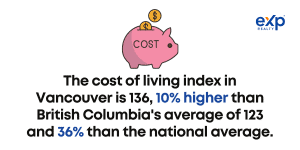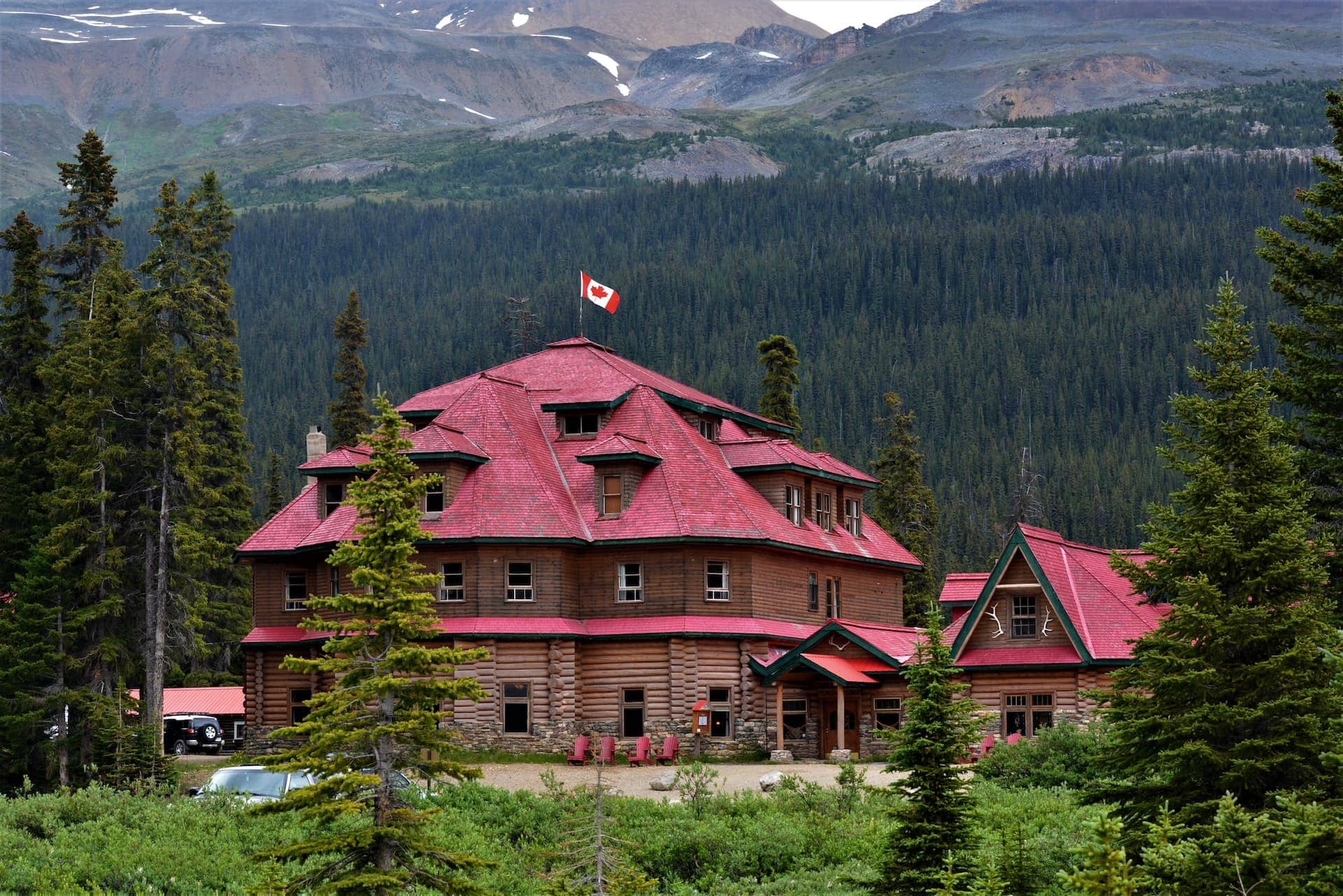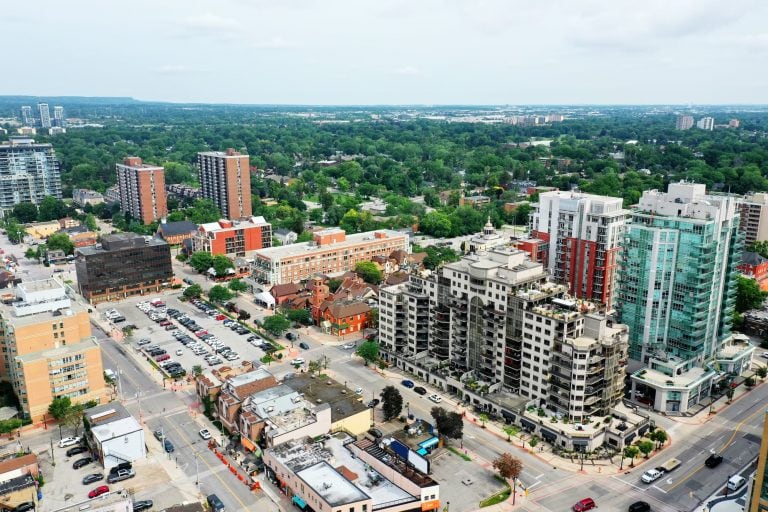Is moving to a small town right for you? This is the question that many Canadians have been asking themselves lately. With the rise of remote working, people are breaking free from traditional, more expensive city living in search of affordable Canada real estate in rural locations across the country.
Before considering trading your Toronto condo for a cottage in small communities like Markdale, ON, remember that there are always two sides to every coin. In this blog post, we will explore the pros and cons of moving to a Canadian small town, so you can make an informed decision about whether this is the right choice for you.
The Pros Of Moving To A Canadian Small Town
More Housing Affordability
Downtowns and metropolitan areas in Canada often come with premium real estate prices, making homeownership unattainable for many. If you are looking for affordable deals, the market in smaller cities or rural areas might be the place to look. Of course, prices and property availability change from place to place.
Let’s put things in perspective with an example: The average sold price of Toronto homes for sale is currently $1M, while in small communities like Markdale, ON, real estate changes hands at an average price of $563K. No wonder a growing number of people are sold on moving to a Canadian small town!
Larger Homes And Lots
Considering buying property in Canada‘s beautiful rural areas is not only financially advantageous, they also tend to provide more bang for your buck. Rural properties are frequently not only larger and more spacious than city dwellings, they also often come with more land.
Having that extra space gives you a chance to do things that are virtually impossible to achieve in a 450-square-foot city condo. Moving to a Canadian small town will allow you to have hobbies by adding a gym, an arts & crafts studio, or an at-home office. Plus, who wouldn’t want their own backyard? Suddenly, Sunday afternoons grilling and lounging become infinitely more enjoyable.
Having Easy Access To Nature
Small towns, rural areas, and suburbs usually have fewer people living close together, giving you more opportunities to breathe fresh air and explore forests, provincial parks, and natural conservation sites. Purchasing a house for sale in a Canada small town also frequently means a greater yard size, a tree-covered deck, or maybe even a pool or lake access to kickstart your outdoor exploration.
Let us not forget that Canada is one of the most beautiful countries in the globe, with stunning natural landscapes that are second to none. From world-renowned national parks and sparkling lakes to the majestic Rocky Mountains and everything in between, you won’t be disappointed.
If you’re an avid hiker, nature lover, or Instagrammer, there are many perks to moving to a Canadian small town. One of them includes endless opportunities for world-class skiing, hiking, fishing, and hunting right outside your doorstep.
Save On Auto Insurance
Saving on auto insurance premiums is another advantage of moving to a Canadian small town. It’s a harsh reality, but statistics show that driving in a busier urban centre is more dangerous, reflecting on how much you pay for car insurance. It is a fact that car insurance rates in the GTA are significantly higher than anywhere else in Ontario. In contrast, smaller towns have much lower rates. If you want to save money on car insurance, embracing rural living might help achieve that goal.
A Slower Pace And More Relaxed Lifestyle
Moving at a slower pace is characteristic of small towns, so If you’re looking to escape the rat race and enjoy a slower pace of life, a small Canadian town could be the perfect place for you. In general, Canadians are known for their laid-back attitude, and this is especially true in small towns.
Life in a small town is all about taking the time to enjoy the simple things in life. There’s no need to rush around from one place to another, and people are generally more interested in spending time with family and friends than anything else. As a result, you’ll find that the stresses of daily life tend to melt away when you relocate to a Canadian small town.
Reduced Traffic
In addition to the slower pace of life, you’ll also find that there’s less traffic in rural areas in Canada. This doesn’t necessarily mean that you’ll be driving less, more like the opposite, but you’ll have a break from the hustle and bustle of the city. This can be a huge relief if you’re used to dealing with bumper-to-bumper traffic on your daily commute to work. If you move to a Canadian small town, you’ll enjoy spending time doing what you love without having to fight for a parking spot.
Lower Living Costs

The cost of living index in Vancouver is 136, 10% higher than British Columbia’s average of 123 and 36% than the national average. The most significant expense is Vancouver real estate at an index of 206, around 106% over Canada’s average.
In contrast, the small community of Murrayville, in Langley Township, has a considerably more affordable cost of living index of 110, around 13% cheaper than British Columbia’s average and about 10% more expensive than other locations across Canada. Purchasing a house in Murrayville costs about 50% less than in the rest of the province.
Better Quality Of Life Overall
Overall, a Canadian small town’s quality of life stands out compared to city living. Let’s start with the basics: smaller towns have clean air, freshwater, and plenty of green space. The slower pace of life results in less stress paired with a close-knit community, more quality time spent with the family, abundant outdoor recreation, and a safer environment that creates a recipe for success.
The Cons Of Moving To A Canadian Small Town
Increasing Home Prices
Even though the real estate markets in small towns are still more affordable than in large metropolises, there has been a growing trend of urbanites relocating to the countryside in search of a more affordable and sustainable lifestyle. As a result, demand for housing in rural areas is on the rise, making them a great place to invest in real estate, but also causing prices to surge.
According to a Reuters report, the increasing demand for homes in small Canadian communities has increased house prices by more than 75% in one year. Due to the rural boom, an influx of builders has flooded into smaller Canadian communities. With the population in many towns skyrocketing, the demand for resources such as drinking water and wastewater treatment also increases, leading to some local governments having to fund infrastructure projects hastily.
Fewer Job Opportunities
A significant downside to living in a small town in Canada is the shortage of employment prospects (particularly high-paying jobs). One option is looking for work in the nearest city or town. Even if you have to commute, you’ll likely find more job opportunities in a bigger area. Another option is to start your own business. Many Canadians are leaving the big cities for farming or homesteading. Commonly, small towns often support local entrepreneurs, and you may find plenty of customers for your products or services. Check with the local Chamber of Commerce or the Economic Development office before taking the leap to a smaller town.
You’ll Be More Car-Dependent
Your new life in a Canadian small town will probably involve purchasing a vehicle if you don’t own one or more frequently using the one you already own. This is because the amenities might be farther and public transit tends to be less reliable or developed than in metro areas.
According to a Survey of Household Spending Statistics in Canada, the average Canadian spends $11,258 on their car every year. This cost factors in things like financing and maintenance fees. Add over $3,000 for gasoline expenses (probably more with recent gas prices hiking).
If you live in the city and use public transportation frequently, calculate those costs for your move. If you have a family, adding a second car might become a necessary expense and add to those costs.
Internet Connectivity Might Change
While internet speed and connection stability are not issues when you live in the city, moving to a Canadian small town presents a new reality, Wifi wise. High-speed Internet connectivity is less available in rural areas. It can also be slower and come at a great expense, so if you’re looking to buy a home in a cottage town, remember to ask your REALTOR® if the property in question has access to high-speed Internet.
Limited Services And Entertainment Alternatives
The hustle and bustle of city life can be dizzying, but it’s also full of opportunity. There are always new things to do and places to go, which give people a sense of purpose and direction. Choosing to live in a small town means accepting that you’ll have to slow down and have a more low-key lifestyle. This involves less diverse shopping and dining options and a limited or non-existent nightlife. That would depend on how small your small town actually is.
Your Social Circle Will Be Less Ample
If you’re new to a small Canadian town, breaking into the social scene can be tough. Don’t worry; there are a few tried and true methods for meeting new people and expanding your social circle. For starters, head to the local pub or coffee shop. These are great places to strike up a conversation with people who share your interests. If you’re looking for something a bit more active, consider joining a sports team or taking a class at the community centre. And, of course, there’s always the old standby of attending local events and festivals. By getting out there and meeting new people, you’ll soon find yourself part of the close-knit social fabric that makes small-town living so special.
Fewer Healthcare And Higher Education Options
When it comes to healthcare and higher education, small towns often have fewer options than their larger counterparts. This can be a big problem for residents who may need specialized care or want to further their education. In addition, smaller towns often have a harder time attracting and retaining qualified healthcare professionals and educators. Take into account that if you have decided to move to a Canadian small town you may have to travel long distances to access the services you or your family require.
Moving To A Canadian Small Town
In the end, only you can decide if moving to a Canadian small town is right for you and your family. We hope this blog post has given you some food for thought on the pros and cons of rural living so you can understand what you’re getting into before making the move. If you have more questions or need help finding a home in a small town, contact an eXp real estate agent. They’ll be able to address all your concerns and help you navigate the local market with ease.
















